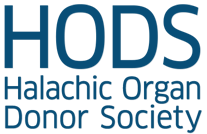Dr. Ghods, an Iranian nephrologist, describes the history of kidney disease treatment in Iran. Owing to strong cultural and religious objection, no cadaveric organ donation program exists; living related donation is accepted. In 1988, with a growing waiting list, Iran began a controlled living unrelated donor (LURD) program. In this system, patients are encouraged to seek out a related donor. If no donor can be found, the patient is referred to a national LURD coordinating organization. After thorough recipient workup, a transplant is arranged from a matching donor who has also been thoroughly evaluated. After transplantation, the donor receives a “rewarding gift” from the government. The majority of recipients receive a similar gift from the donor’s family. These gifts, Dr. Ghods says, “have been limited to a range that the majority of patients of a poor socioeconomic class are able to afford.” By 1999, the program had been so successful that the waiting list was eliminated. Iran’s transplant and recipient survivor rates are high though they do not match Western standards. Dr. Ghods points out that Iran is a developing country whose medical infrastructure cannot compare to the developed world. The success of this program, combined with the scientific data available, make Iran’s living unrelated donor program a successful model of regulated organ sales warranting future investigation.
Halachic Organ donor Society, 3926 W. Touhy Ave, Suite #365, Lincolnwood, IL, 60712-1028. Phone: 646-599-3895, Email: office@hods.org
